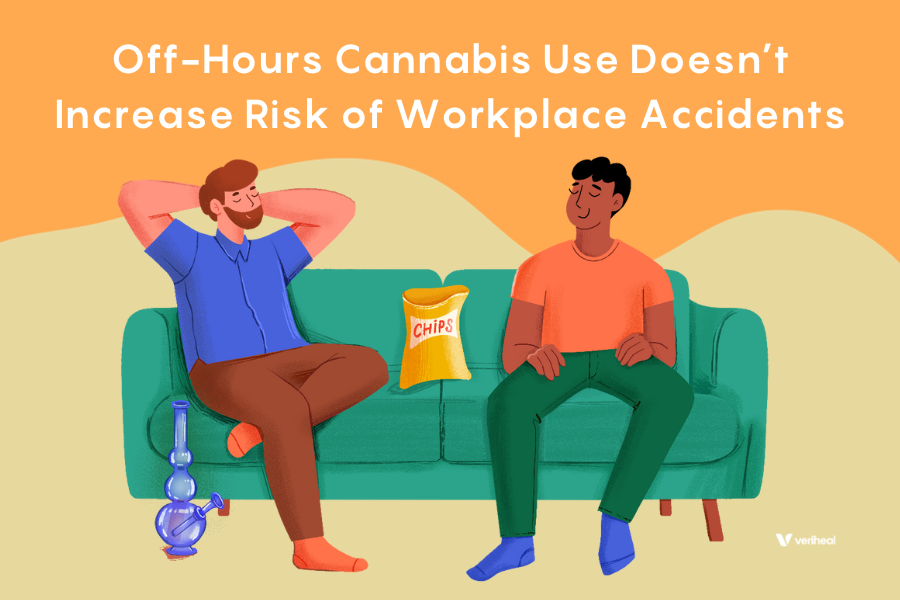It’s a common question for many cannabis lovers out there: How will my off-hours cannabis use impact the safety of my job? After all, most employers have strict policies about cannabis use, and you want to make sure that your personal lifestyle won’t put yourself or others at risk. Luckily, new research has provided some insight into this dilemma.
A recent 2023 study published in the Canadian Journal of Public Health shows that employees who use cannabis off the clock are just as safe on the job as those who steer clear of cannabis altogether. Let’s explore the findings in greater detail and explain why you don’t need to worry about sacrificing your weekend buzz for your job.
Research Background: Off-Hours Cannabis Use and Employment
The leading researchers from the University of Toronto’s Dalla Lana School of Public Health have turned their focus toward a topic of growing social relevance—off-hours cannabis use and its potential effects on workplace safety. Recognizing the importance of capturing a broad perspective, the research team designed a study that went beyond a single demographic or occupation.
Instead, they assembled a diverse sample of 2,745 Canadians, ranging from blue-collar workers to white-collar professionals, and various age groups and regions. This comprehensive approach was key to investigating the multi-layered relationship between cannabis use and workplace injuries. The methodology, rooted in rigorous scientific principles, ensured a balanced and thorough exploration of the subject matter, ultimately revealing that cannabis use during off-hours does not result in an elevated risk of work-related injuries.
Such findings hold a great deal of significance as policymakers, employers, and employees grapple with the complexities of cannabis legalization and its influence on the modern work environment.
Key Findings
The study’s findings shed light on a fascinating aspect: the minimal influence of after-hours cannabis use on workplace accidents. Surprisingly, researchers discovered virtually no difference in the risk of occupational injuries between cannabis users during leisure time and those who did not use cannabis.
Nevertheless, a different scenario arises for cannabis consumption during or just before working hours. In those situations, the likelihood of workplace injuries nearly doubles, emphasizing the critical role of timing when thinking about cannabis use and its connection to safety on the job.
Why You Should Get Your Medical Marijuana Card
Veriheal has satisfied millions of patients nationwide by giving them access to these benefits
- Larger purchase limits
- Peace of mind
- Enhanced legal protection
- Access to higher potency strains
- Save up to 25% on cannabis purchases
- Skip the line at the dispensary
Implications of the Off-Hours Cannabis Use Study
The study serves as a beacon of hope in an area filled with conflicting findings. By differentiating between cannabis use during work versus off-hours, it lays to rest much of the uncertainty that has plagued previous research on the subject.
One of the most remarkable implications of the study is the importance of timing: the risk associated with cannabis use is not a one-size-fits-all issue. Instead, it appears to solely depend on when the consumption takes place. To be more precise, it’s the use of cannabis near or during work hours that poses an elevated risk for workplace incidents, as opposed to its use during off-hours.
Current Drug Testing Procedures
Conventional drug testing methods primarily rely on detecting THC or its main metabolite, carboxy-THC, in urine or blood samples. These tests have been the industry standard for years but are increasingly coming under scrutiny for a few compelling reasons:
- Limitation in Assessing Impairment: These tests can confirm the presence of THC metabolites, but they cannot differentiate between recent and past use. This means that an employee who consumed cannabis days or even weeks prior could still test positive, raising questions about the fairness and efficacy of such tests in assessing immediate workplace impairment
- Lack of Timing Information: Conventional tests do not provide insights into when cannabis was last consumed, leaving a significant gap in our understanding of whether the individual is actually under the influence at work or merely showing traces from past use.
Recognizing these limitations, there has been a shift in policy to make drug testing more equitable and relevant. Policy changes are happening at both the state and federal levels, as evidenced by:
- Michigan, Nevada, and Washington: These states have recently taken the bold step of eliminating pre-employment cannabis screening for most public-sector jobs. This move acknowledges the ineffectiveness of such tests in assessing job capability and workplace safety.
- Other progressive states: Various other jurisdictions, including California, Connecticut, Montana, New Jersey, New York, and Rhode Island, have enacted legislation that prevents the termination of employees solely based on a positive test for THC metabolites. These legal changes point to a broader, more nuanced approach to employee drug testing that takes into account the limitations of current approaches.
This evolving landscape indicates a growing awareness of the inadequacies in current drug testing procedures and points toward the need for more precise and reasonable approaches to ensure workplace safety and fairness.
» Learn more about THC drug tests.
A Final Note
This study presents valuable insights for employers and employees regarding the intricate relationship between cannabis use and safety at work. It emphasizes the significance of timing, as off-hours use does not seem to pose a cause for concern.
However, consuming cannabis near or during work hours significantly raises the risk of work-related mishaps. These findings suggest that focusing on the timing of cannabis use could provide a more comprehensive and practical approach to maintaining a safe work environment. While this study contributes significantly towards clarifying previous uncertainties, further research is required to delve into the finer points of cannabis use and its impact on safety in the workplace.
Author, Share & Comments
















